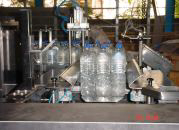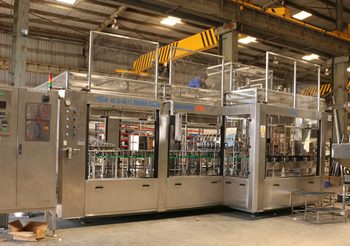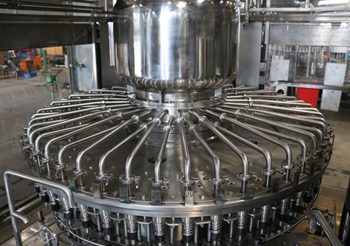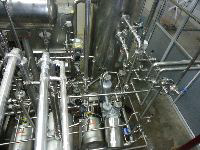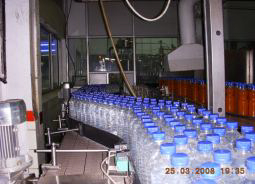
Picture yourself checking into a luxurious hotel, excitedly anticipating your stay. As you settle into your room, one thing that is bound to leave a lasting impression is the dining experience offered by the hotel’s food and beverage department. From exquisite culinary delights to impeccable service, this department plays a vital role in ensuring guest satisfaction and creating memorable moments. Let’s dive deeper into understanding what exactly this department entails and why it holds such significance in the hospitality industry. So grab a seat (and maybe a snack!) as we explore the world of delectable delights within hotels!
What is the Food and Beverage Department?
The Food and Beverage (F&B) department is an integral part of any hotel operation. It refers to the division responsible for providing food and drink services to guests. From restaurants and bars to room service and banquets, the F&B department plays a vital role in ensuring guest satisfaction.
In essence, the F&B department is responsible for creating memorable dining experiences for guests during their stay. This involves menu planning, procurement of ingredients, food preparation and presentation, as well as managing staff members who work in various roles such as chefs, waiters, bartenders, and sommeliers.
Furthermore, the F&B department also oversees the financial aspects related to food and beverage operations. They are responsible for cost control measures like inventory management and pricing strategies to maximize profitability while maintaining quality standards.
A well-run F&B department can greatly contribute to a hotel’s success by enhancing its reputation among guests. Providing exceptional culinary experiences not only leads to positive reviews but also encourages repeat business from satisfied customers.
Moreover, the F&B department has a direct impact on guest satisfaction levels. Good food quality coupled with attentive service can create lasting memories for guests which they may share with others through word-of-mouth or online reviews—boosting the hotel’s brand image even further.
Additionally, a strong F&B team can help differentiate a hotel from its competitors. By offering unique dining concepts or signature dishes that reflect local flavors or international cuisines, hotels can attract discerning travelers seeking authentic culinary experiences.
However successful an F&B department may be; it does face certain challenges along the way. These may include high staff turnover rates due to long working hours or seasonal fluctuations in demand leading to resource constraints at times.
Functions of the Food and Beverage Department
The Food and Beverage Department in a hotel plays a crucial role in providing excellent dining experiences for guests. It encompasses various functions that ensure smooth operations and satisfy the culinary needs of visitors.
One of the primary functions of the F&B department is menu planning and development. This involves creating diverse menus that cater to different tastes, dietary restrictions, and cultural preferences. The department collaborates with skilled chefs to design enticing dishes that showcase creativity, quality ingredients, and culinary expertise.
Another important function is procurement and inventory management. The F&B department takes responsibility for sourcing high-quality ingredients at competitive prices while adhering to food safety regulations. They also keep track of inventory levels to avoid stock shortages or wastage.
The preparation and cooking process falls under the purview of this department as well. From ensuring proper kitchen hygiene practices to maintaining efficient workflow, they oversee every aspect of food production to deliver delicious meals promptly.
Additionally, the F&B department manages restaurant operations by overseeing table reservations, coordinating service staff activities, and ensuring impeccable guest service throughout their dining experience.
To maintain profitability, cost control measures are implemented within the department. This includes monitoring expenses related to labor costs, ingredient prices, energy consumption, equipment maintenance, among others.
Importance of a well-run F&B department in a hotel
A well-run Food and Beverage (F&B) department is crucial for the success of any hotel. This department is responsible for managing the culinary operations, including food preparation, service, and overall guest experience in dining areas.
A well-run F&B department ensures that guests have an exceptional dining experience during their stay. From breakfast buffets to fine-dining restaurants, every aspect of food and beverage service needs to be seamless and enjoyable. The quality of the food, presentation, ambiance, and attentiveness of staff all contribute to creating a positive impression on guests.
The F&B department plays a significant role in generating revenue for hotels. Dining options are often one of the deciding factors when guests choose where to stay. By offering diverse menus with delicious dishes crafted by skilled chefs and providing excellent service standards consistently across all outlets within the hotel premises can increase guest satisfaction levels leading to repeat business as well as positive reviews online.
Furthermore, a well-functioning F&B department also contributes significantly to cross-selling opportunities within the hotel. For example, if a guest has an amazing dining experience at one restaurant or bar within the hotel property they may be inclined to explore other amenities such as spa services or book additional nights at this particular establishment.
Moreover, maintaining high hygiene standards is paramount in any F&B operation especially when it comes to ensuring food safety practices are followed diligently by all kitchen staff members from receiving ingredients till serving meals.
In conclusion,
the importance of having a well-run F&B department cannot be overstated when it comes to enhancing guest experiences while maximizing revenue potential for hotels. It requires efficient management skills combined with expertise in culinary arts along with excellent customer service abilities.
By prioritizing these aspects consistently,
hotels can build their reputation as destinations that offer remarkable dining experiences,
leading them towards long-term success
How the F&B department can enhance guest experience
The food and beverage department plays a crucial role in enhancing the overall guest experience at a hotel. From the moment guests walk into the dining area, their satisfaction becomes the top priority of the F&B team.
One way that the F&B department can enhance guest experience is by providing exceptional customer service. Friendly and attentive staff members create a welcoming atmosphere, making guests feel valued and appreciated. Whether it’s recommending menu items or catering to special dietary needs, going above and beyond to meet guest expectations is key.
In addition to excellent service, offering an innovative and diverse menu selection can also elevate the guest experience. A well-curated menu with unique dishes created by skilled chefs allows guests to indulge in memorable culinary experiences during their stay. It’s important for hotels to cater to different tastes, dietary restrictions, and cultural preferences to ensure every guest finds something they love.
Furthermore, maintaining high-quality standards in food preparation and presentation is essential for leaving a lasting impression on guests. The F&B department should prioritize using fresh ingredients sourced locally whenever possible. Attention to detail in plating dishes not only adds visual appeal but shows dedication towards creating a truly remarkable dining experience.
Collaboration with other departments within the hotel is another way that the F&B department can enhance guest satisfaction. By working closely with housekeeping or front desk teams, seamless coordination ensures smooth delivery of room service orders or personalized dining requests.
When executed effectively, a well-run food and beverage department has immense potential for enhancing guest experiences at hotels. By focusing on delivering exceptional customer service, offering creative menus, maintaining quality standards in food preparation, and collaborating across departments – hotels can create memorable moments that keep guests coming back again!
Challenges faced by F&B departments
Challenges F&B departments face can vary depending on the hotel and its specific circumstances. However, there are some common difficulties that these departments often encounter. One of the major challenges is maintaining a high level of consistency in food quality and service. With different chefs, cooks, and waitstaff working at different times, ensuring consistent experiences for guests can be a daunting task.
Another challenge is managing costs while still offering an appealing menu. Food and beverages can be expensive to procure, especially if the hotel aims to provide high-quality ingredients or unique culinary offerings. Balancing cost-effectiveness with guest satisfaction requires strategic planning and careful inventory management.
Staff turnover is yet another hurdle faced by F&B departments. The hospitality industry tends to have high employee turnover rates due to long hours and demanding work environments. This constant need for training new staff members can impact productivity and service quality.
In addition, keeping up with changing customer preferences presents an ongoing challenge for F&B departments. As dietary trends shift towards healthier options or specific cuisines gain popularity, hotels must adapt their menus accordingly to cater to diverse needs.
Competition within the industry poses a significant challenge as well. Hotels must differentiate themselves from other establishments by offering unique dining experiences or innovative concepts that attract guests.
Overcoming these challenges requires effective leadership, continuous training programs for staff members, adapting menus based on customer feedback and market trends, as well as staying ahead of the competition through creativity and innovation. By addressing these obstacles head-on, F&B departments can thrive in providing exceptional dining experiences within hotels.
Future trends in the F&B industry
As with any industry, the food and beverage sector is also constantly evolving to meet the changing needs and preferences of guests. Here are some future trends that we can expect to see in the F&B industry:
1. Sustainability: With growing awareness about environmental issues, hotels are increasingly focusing on sustainable practices in their F&B departments. This includes sourcing local and organic ingredients, reducing food waste, and implementing energy-saving measures.
2. Technology integration: The use of technology is becoming more prevalent in the F&B department. From online reservations to digital menus and self-service kiosks, technology is streamlining operations and enhancing guest experiences.
3. Personalization: Guests today seek unique dining experiences tailored to their individual preferences. Hotels are embracing this trend by offering personalized menu options, special dietary accommodations, and interactive chef-led experiences.
4. Health-conscious options: As more people prioritize health and wellness, hotels are incorporating healthier choices into their menus. This includes offering plant-based alternatives, gluten-free options, and dishes made with fresh ingredients.
5. Fusion cuisine: The popularity of fusion cuisine continues to rise as guests seek new flavors and culinary adventures. Hotels are experimenting with blending different cultural influences to create innovative dishes that cater to diverse palates.
6. Immersive dining experiences: To differentiate themselves from competitors, hotels are creating immersive dining experiences that go beyond just food and beverage offerings. Examples include themed pop-up restaurants or rooftop bars with stunning city views.
7. Delivery services: The pandemic has accelerated the demand for delivery services within the hospitality industry.
Hotels have started partnering with popular delivery platforms or developing their own delivery systems,to reach a wider audience without compromising on quality standards.
The importance of a well-run Food and Beverage Department cannot be overstated when it comes to ensuring guest satisfaction in a hotel setting.
